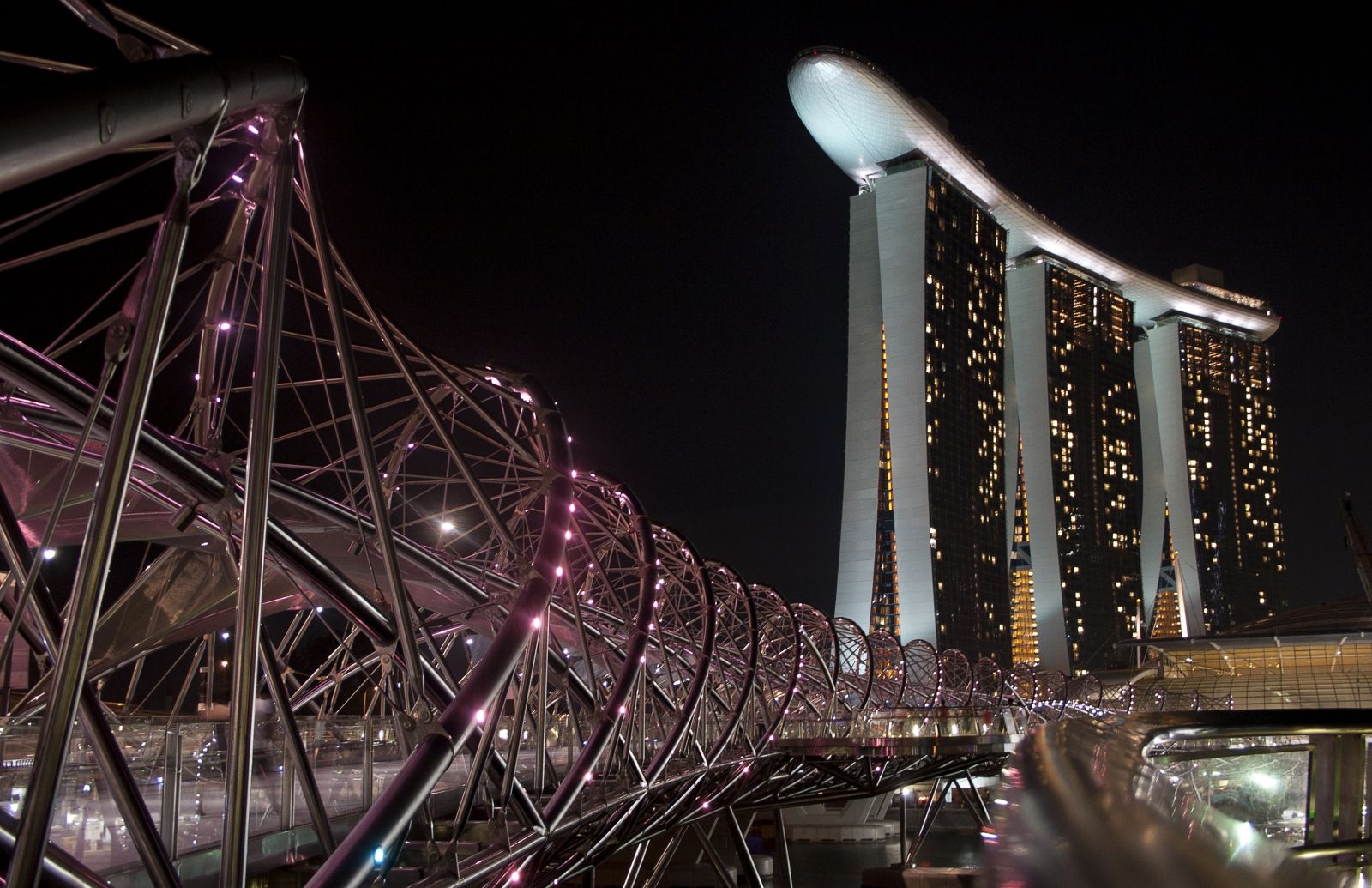
Almost 2,000 years and 10,000 kilometers separated the Roman poet Juvenal and David Marshall, a Jewish Singaporean who served as the then-colony's first chief minister, but their worries were remarkably similar. Juvenal saw the Romans, freed from the bother of politics by the Republic's transformation into an Empire, turning eagerly to bread and circuses; Marshall, decrying Singaporean youth's "apathetic subservience to authority" in 1994, told a young law student, Dharmendra Yadav: "You say to yourselves...'What do we seek in life? We seek a rice bowl, full!' It is full and overflowing, in fact. They serve you your rice in a jade bowl with golden chopsticks; not that it makes much difference to the taste of the rice. But you're empty!"
In Singapore, the food is cheap, the entertainment plentiful and the living, for most who conform, easy. The city certainly looks astonishing: Spectacular skyscrapers rise in every direction, their inventively skewed forms shining in the perma-sunlight while relics of the former colony cower beneath. This year, the country celebrates 50 years since independence, and founder prime minister Lee Kuan Yew's determination to pull a post-war colonial backwater into the full glare of capitalist success is vindicated everywhere you look.
Singaporeans are largely healthy and wealthy, with excellent education, low unemployment (if high inequality) and remarkably low corruption. In the hawker centers, a few Singapore dollars give you the freedom of a continent: Indians scoop rice in spicy sauce, Chinese sink chopsticks into noodles, Malays tear at the elastic stuffed pancakes known as murtabak.
Two weeks after Lee died in March, aged 91, I visited the National Museum of Singapore's hastily erected exhibition commemorating the country's founding father. Mourners filed past boards devoted to Lee's achievements: founding the People's Action Party (PAP); leading Singapore out of British dominion and into union with Malaysia and, two years later, ruffled but still dignified, into the pure clear air of independence.
Surrounded by Muslim nations and communists, Singapore was called the Israel of Asia; the city's multiculturalism, like its wealth, was achieved by willpower and strong measures are in place to protect it. Despite the ethnic pockets so useful to those looking for fish head curry or Hainanese chicken rice, the racial groups don't live separately; the government can ensure this because around 80% of the population lives in government housing. Stringent arts censorship bans any work perceived to "cause feelings of ill-will between different racial or religious groups."
Yet there are arts aplenty in Singapore, from theater to music to the National Gallery, housing the world's largest collection of South-East Asian art, which will open in November. Marc Restellini is opening a second branch of his maverick Paris Pinacothèque here this month, with an Art Academy that will offer courses and also, tellingly, corporate retreats. This all sounds nice, if unlikely to bring the system to its knees. But then, why should it? The system works. Its distractions are far less cruel than Ancient Rome's chariot races and gladiators. Still, Juvenal's opposition of political consciousness and mindless pleasure holds good two millennia on. Only details change, I think, plodding down mall-encrusted Orchard Road: In a capitalist haven, the ultimate circus is not live entertainment but shops. Here are Marshall's jade bowls and golden chopsticks.
In a mall, I chat to a stallholder. Everything looks good outside, he tells me. Inside, "this is the last country for happiness in the world." This, surely, is the paradox of a repressive regime: limit individual expression in the name of safety and you never know what people are thinking, so the authorities can never feel safe. Bread and circuses are partly an attempt to ensure that they think as little as possible, and so far it has worked. Are wealth and ease enough, in a country with rising inequality, in the age of the Internet? We will see. But distractions did not save the Roman Empire. Perhaps Singapore's government should be worrying about barbarians instead.
Uncommon Knowledge
Newsweek is committed to challenging conventional wisdom and finding connections in the search for common ground.
Newsweek is committed to challenging conventional wisdom and finding connections in the search for common ground.
About the writer
To read how Newsweek uses AI as a newsroom tool, Click here.








